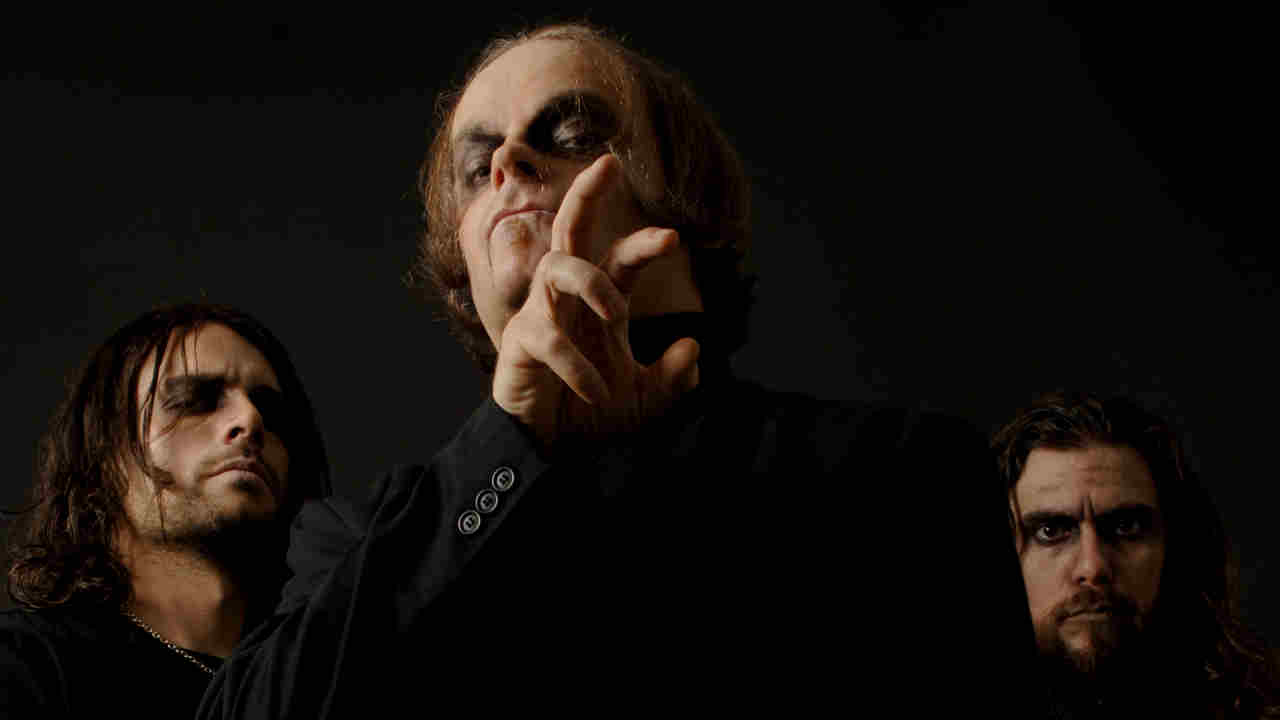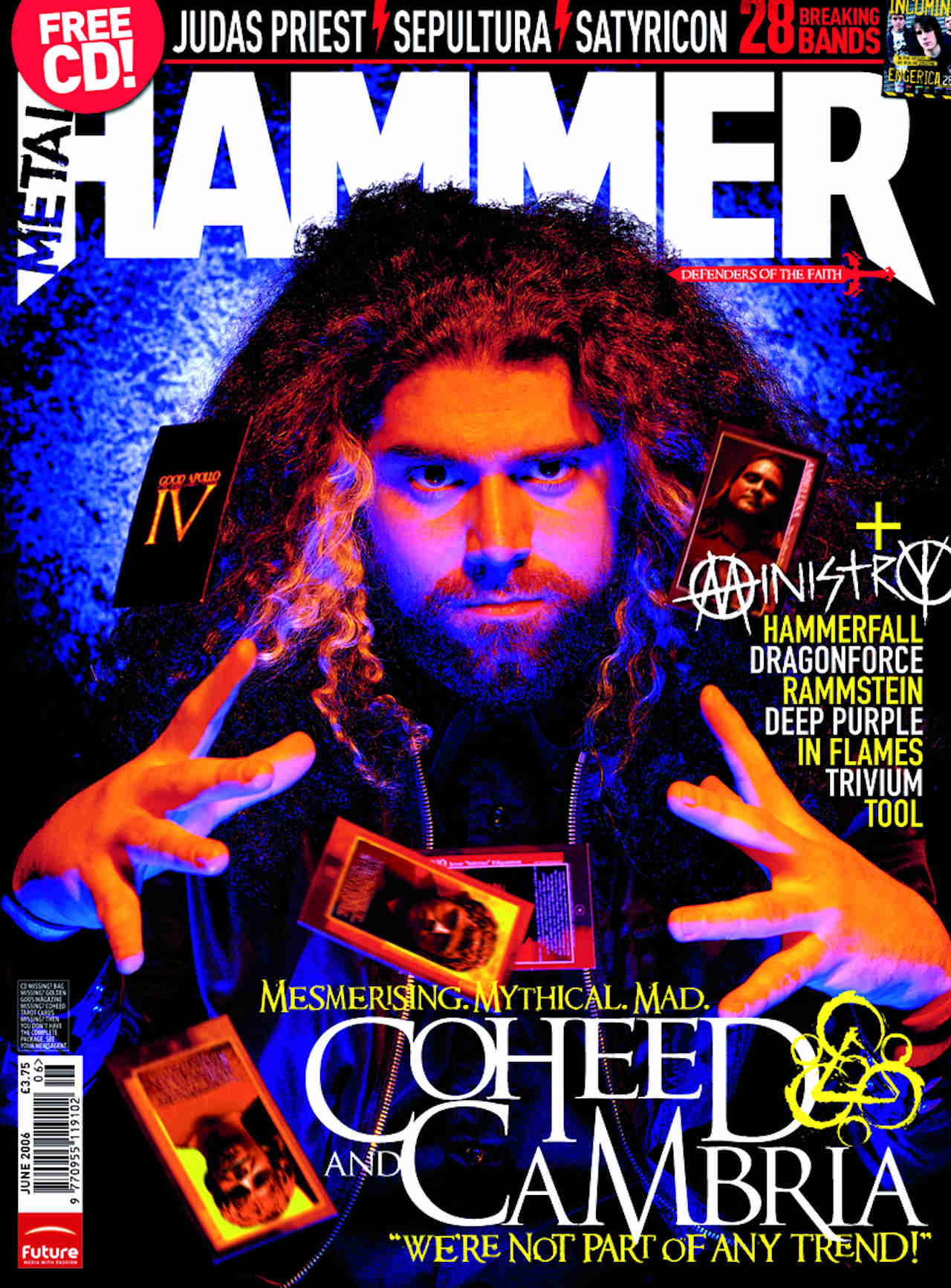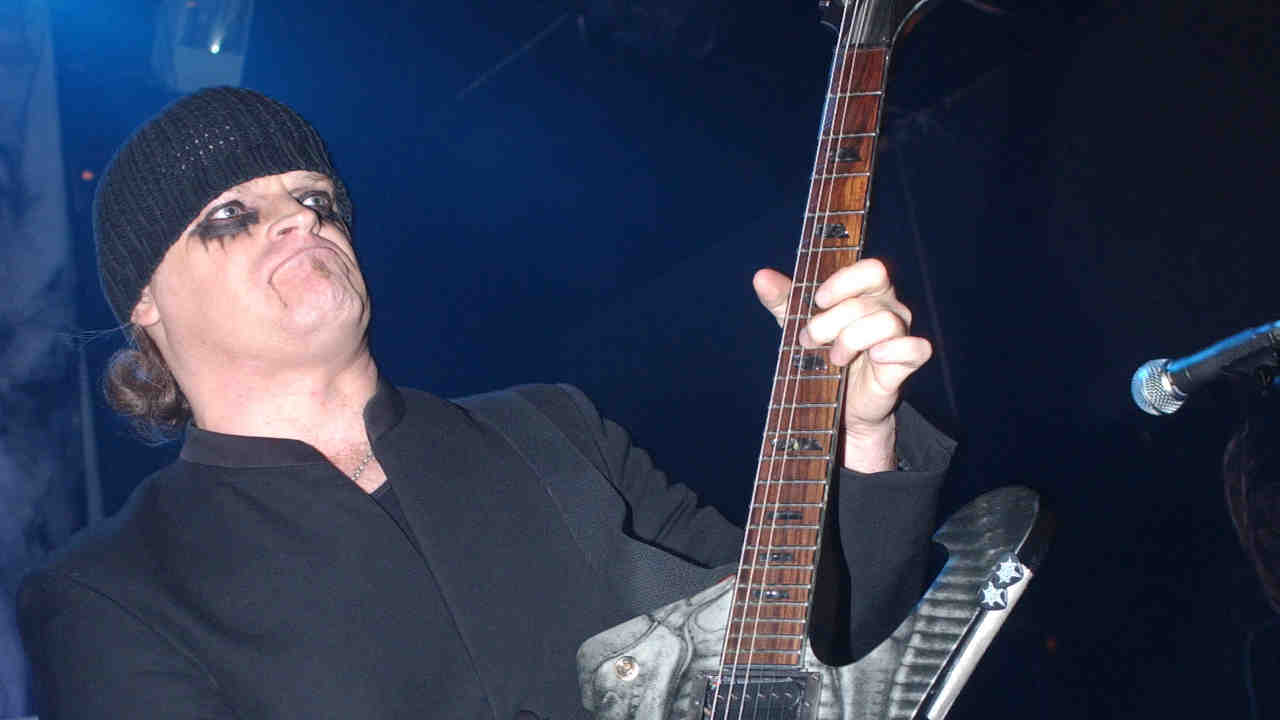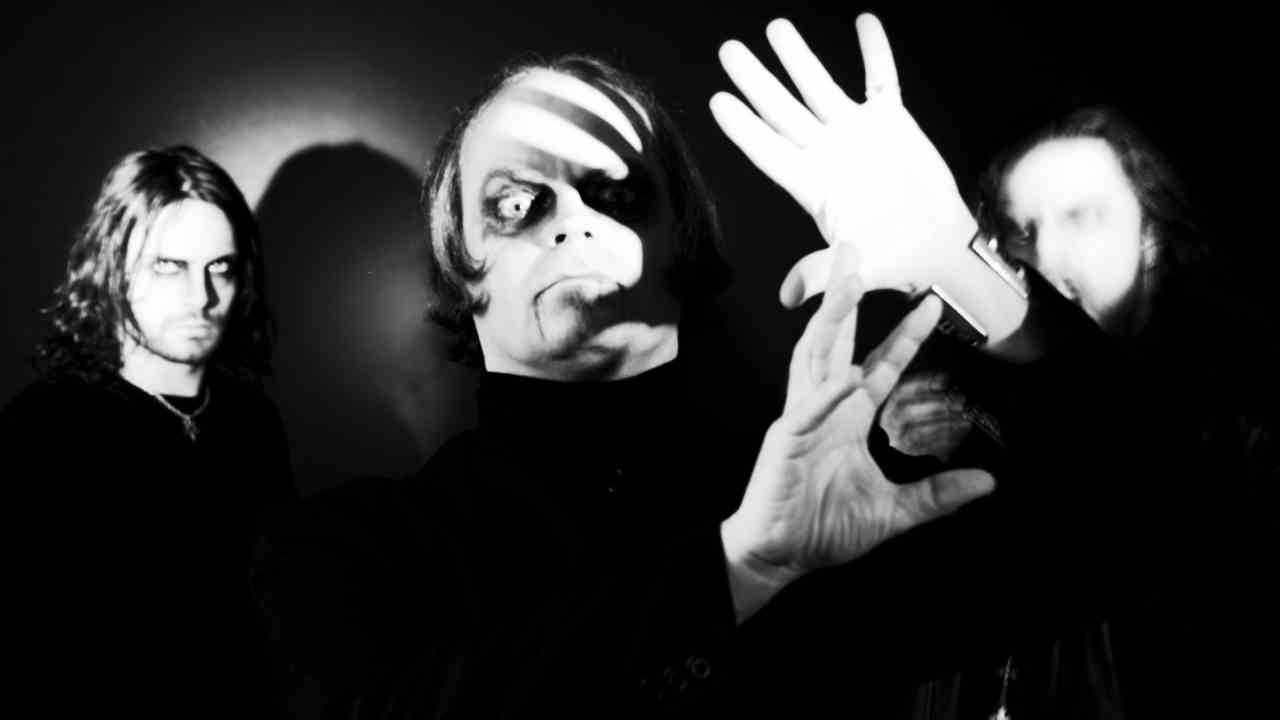Celtic Frost were one of the most influential extreme metal bands of the 1980s, releasing classic albums Morbid Tales, To Mega Therion and Into The Pandemonium before losing the musical plot and splitting in the early 1990s. In 2006 they reunited for the acclaimed Monotheist album. As frontman Thomas Gabriel Fischer told Metal Hammer, it was their attempt to erase the mistakes of the past – even if the reunion wouldn’t fall apart once more two years later.

Reunions suck. There isn’t a sadder sight than seeing some band that maybe meant something to you 10 or even 20 years ago getting together again to trot through a set of their greatest hits that somehow never sound quite as good as they once did. And many of them never leave it at that; they insist on making bog awful new albums and playing material from them that nobody wants to hear.
We live in a culture of permanent nostalgia, with even the most extreme bastions of underground metal not immune to the lure of a few bucks to relive some former glories. The past is constantly being recycled and history rewritten. There is not a band who has ever been who can’t be reformed again. You can’t blame the bands; you have to blame their fans who have now grown up and are intent on reliving their own youth and loving them to death.
The rule is this: you can go as long as you want, 20 years, even 30 years, and as long as you don’t actually split up, you can still make fantastic music. Look at Slayer, Metallica and Darkthrone. But as soon as you reform with a so-called ‘classic’ line-up, you become shit. Nobody knows why: it’s just the rule for the way things are.
There are, of course, honourable exceptions. Judas Priest is one. Emperor – arguably – is another. And as soon as the opening assault of Celtic Frost’s belated sixth full-length album Monotheist blasts from your speakers, it’s clear that here is the most exceptional exception to the steadfast rule.
The Swiss band were, along with Venom and Bathory, one of the bands who created extreme metal as we know it today. A whole generation of corpse-painted Norwegians owe their existence to the pioneering work of Celtic Frost, but also bands such as Neurosis and Isis, who incline towards a more progressive and experimental take on metal, acknowledge them with respect. It isn’t quite a two way street: frontman/guitarist Thomas Gabriel Fischer professes no great knowledge of contemporary metal, though 1349’s Ravn sings backing vocals on the new album.

Monotheist much anticipated, then, in many quarters. Planned in secret since 2000, bassist Martin Ain and Fischer have sweated through a tortuous process of creation to deliver an album that is possibly the first great Celtic Frost record since Into The Pandemonium, in 1987 years ago.
That album was a dazzling demonstration of the possibilities of heavy metal, a crazed bomb wielding anarchist in a room full of ultra conservatives. Yet it marked the start of a terrible struggle that ultimately resulted in the demise of the ‘classic’ line-up.

“We had so many problems with our record company in the 80s,” says Fischer. “We had to fight for our artistic freedom, for our right to make albums like ‘Into The Pandemonium’ that were very unusual in heavy metal terms. We had to take legal action against them.”
This war of attrition wore the band down. Founding member Ain, who had been Fischer’s partner in the pre-Celtic Frost black/death metal pioneers Hellhammer, left the band.
The glam-tinged Cold Lake, the follow up to Into The Pandemonium, was generally regarded as a failure by fans, critics and Fischer himself. 1990’s Vanity/Nemesis was an unsatisfactory attempt to reset the Celtic Froday sound.
Although Martin rejoined the band around the time of Vanity/Nemesis, he had no input into the songwriting or the production, and to this day Fischer doesn’t actually regard it or Cold Lake as being ‘proper’ Celtic Frost albums. So does he then regard Monotheist as being the legitimate follow up to Into The Pandemonium?
“Proper Celtic Frost albums are those where both Martin and me were involved in every aspect of production,” he says. “We struggled so hard to make Into The Pandemonium to incorporate the more experimental aspects into the sound of Celtic Frost. In this album the experiments are more integrated into the sound, they aren’t just add-ons. Every album is different. In many ways this one is closer to [1985’s] To Mega Therion than to Into The Pandemonium.”
Celtic Frost were formally wrapped up after the release of 1992’S compilation Parched With Thirst I Am And Dying. That album included new songs that many hoped would be a taster for a forthcoming sixth Celtic Frost album to be called Under Apollyon’s Sun, but alas that wasn’t to be. Fischer decided to go off with guitarist Erol Unala to form the more industrial influenced Apollyon Sun.
“It left both Martin and me feeling that Celtic Frost hadn’t said everything that we were supposed to say,” says Fischer.
In the late 90s they met in a restaurant and talked about the possibility of doing a new album. In 2001, Fischer and Ain began to write music together, along with Erol Unala and drummer Franco Sesa. The plan was to record a very dark and heavy album. It wasn’t planned to take so long but the years racked up.
“We didn’t want to do a cheap cash-in, a quick reunion album. We took our damn time,” says Fischer.
Everyone in the band gave time and money to see that the project was completed. There was a casualty along the way with Unala quitting the band shortly after the album was completed.
Despite this, once all was done and dusted, Fischer and Ain describe it as “the darkest album Celtic Frost have ever recorded” (the original title that they considered was Dark Matter Manifest).

In the process, he explains, they recorded and discarded enough material to fill at least three albums, gradually distilling the songs into the hour or so that fills ‘Monotheist’.
“We were extremely self critical,” he says. “I think that’s a very Celtic Frost trait. Some of the rejected material that we did was interesting and we recorded it to quite a high standard –and we do go back and listen to it from time to time – but we thought ‘what would be the point of making a Celtic Frost album after 20 years if it didn’t actually sound like Celtic Frost songs?’ Some of it was amazing, really experimental, but it couldn’t have been released as a Celtic Frost album.”
Because of their previous bad experiences with labels, they paid for the album out of their own black pockets and then took the finished product around to different record companies – who by that stage were battering down the door in a chequebook waving frenzy.
“There were a million offers, particularly after they heard some of the songs. What was difficult was to get Martin and me to the point in the negotiations where we were happy to let it out of our hands and into the hands of the record label,” says Fischer. “There were a lot of negotiations to make sure that we had the tools to control what we need to.”
The band signed a distribution deal with Century Media at the beginning of the year, after announcing headlining slots at festivals around Europe.
Strangely, Fischer agrees that most band reunions are lame and went through a lot of soul searching before committing to the resurrection of Celtic Frost.
“We’ve had so many offers over the years from promoters, from record companies and from former Celtic Frost members. We’d turn them down and the offers would get higher and higher until it got really insane. For a long time I thought that the very word ‘reunion’ was embarrassing,” he says.
Ironically then, the band actually spent a lot of their own money making Monotheist when there were lots of fat cats out there who were prepared to pay them shitloads.
“I think that the impetus had to come from within rather than from without,” says Fischer. “When Martin and I met up in 1999 when we were working on the remastered Celtic Frost albums, we found that there was still so much of a vibe between us, even although it had been 10 years since we last played music together. And from that point on it was a very natural progression. And I think that’s what makes this different from all other reunions. A lot of people may be sceptical about this, of course.”
They may be. Reunions still suck, but Celtic Frost are prepared to let the music answer. It’s always exceptions that prove the rule.
Originally published in Metal Hammer issue 153, May 2006



